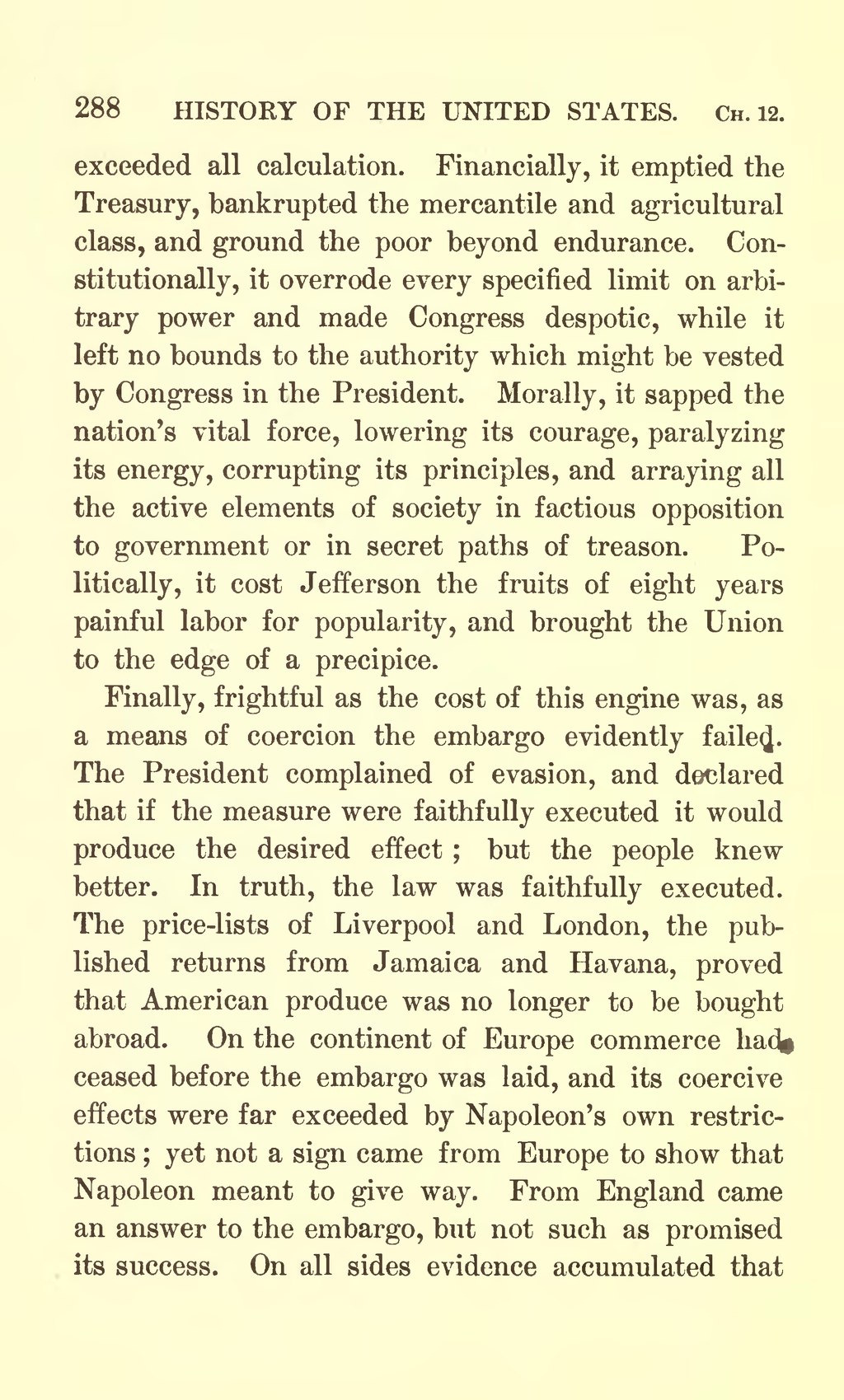exceeded all calculation. Financially, it emptied the Treasury, bankrupted the mercantile and agricultural class, and ground the poor beyond endurance. Constitutionally, it overrode every specified limit on arbitrary power and made Congress despotic, while it left no bounds to the authority which might be vested by Congress in the President. Morally, it sapped the nation's vital force, lowering its courage, paralyzing its energy, corrupting its principles, and arraying all the active elements of society in factious opposition to government or in secret paths of treason. Politically, it cost Jefferson the fruits of eight years painful labor for popularity, and brought the Union to the edge of a precipice.
Finally, frightful as the cost of this engine was, as a means of coercion the embargo evidently failed. The President complained of evasion, and declared that if the measure were faithfully executed it would produce the desired effect; but the people knew better. In truth, the law was faithfully executed. The price-lists of Liverpool and London, the published returns from Jamaica and Havana, proved that American produce was no longer to be bought abroad. On the continent of Europe commerce had ceased before the embargo was laid, and its coercive effects were far exceeded by Napoleon's own restrictions; yet not a sign came from Europe to show that Napoleon meant to give way. From England came an answer to the embargo, but not such as promised its success. On all sides evidence accumulated that
